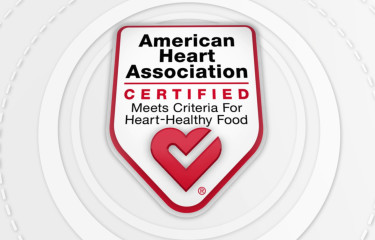The American Heart Association defended its “Heart-Check Mark” logo on food products, after a class action lawsuit was filed in the United States against Starkist tuna for using the logo.
Tuna products from Starkist, owned by Dongwon Industries in South Korea, do not disclose that the Heart-Check Mark is a “paid endorsement,” according to the complaint filed in U.S. District Court for the Northern District of New York.
“StarKist’s products contain a brazen misrepresentation that causes consumers to falsely believe that StarKist products are healthier than products made by other food manufacturers,” Plaintiff Abraham Jacob Warner, a resident of Walker Valley, New York, said. “In fact, a food manufacturer must pay the American Heart Association in order to place the Heart-Check Mark on its products. However, in violation of state and federal law, StarKist fails to disclose on its product labels that the Heart-Check Mark is a paid endorsement.”
A Starkist spokesperson told SeafoodSource that the company had “no comment” on the lawsuit.
The AHA makes a “significant profit” off the sale of rights to use the Heart-Check Mark, according to the complaint.
“The AHA can do this because the presence of the Heart-Check Mark on a product increases sales and allows companies such as StarKist, to sell their Heart-Check Mark products at a price premium,” the complaint said.
However, a spokesperson for AHA explained how the organization’s Heart-Check Mark labeling program works.
“Participating food manufacturers pay administrative fees per product to cover program operating expenses. Revenues cover the expenses of the program itself, which include product testing and certification, program management and oversight, legal and contract fees, program marketing and staff resources,” Suzanne Grant, media relations and corporation communications for AHA, told SeafoodSource.
“AHA’s Heart-Check Mark program is an important resource for the general consumer to use to select healthier food choices. All products must meet AHA, FDA [Food and Drug Administration] and USDA [United States Department of Agriculture] dietary guidelines and comply with U.S. government regulations for coronary heart disease health claims,” Grant added.
The complaint asks the judge to award USD 50 (EUR 41) for each class member, or an increase in the award of damages to an amount not to exceed three times the actual damages up to USD 1,000 (EUR 813), along with reasonable attorney’s fees and costs.
The plaintiff is represented by Finkelstein Blankinship Frei-Pearson & Garber LLP, a White Plains, New York-based law firm that specializes in class action lawsuits.







